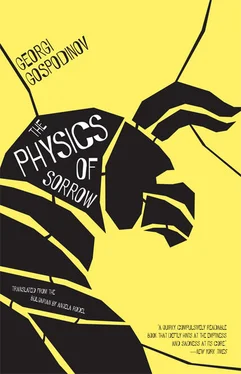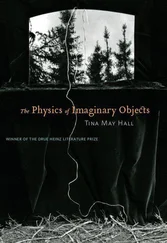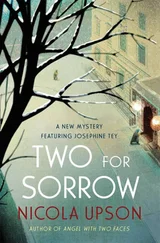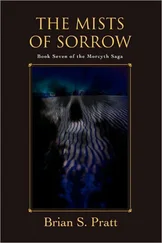And Sunday again, all the Sundays in the world, in the morning, somewhere in Europe.
The bells wake me up and, half-asleep, I try to guess exactly where I am. I recall all the mornings in the world, starting like this, chanting the rosary of cities and towns — Graz, Prague, Regensburg, Vienna, Zagreb.
Every place has a small square, a cathedral and a hotel behind it, just one bell’s ring away. I look around the room. It’s Ljubljana, as the thick green folder of Hotel Union confirms, with its gold Secession-style inscription reading “1907”—the year it opened. The bells are ringing, some gentle, bright force hurries me to get dressed and go down to the street. Bells and the body likely have some very old conversation of their own tied to all the joys and sorrows, weddings and deaths, fires and uprisings, floods and parades that bells announced over centuries past. Run out onto the street as soon as you hear them. I mingle with the crowd, trying to dissolve into it, obliterating my own identity. Now, I tell myself, I am only here, in this city, on this square, with these people, on this Saturday or Sunday. I want to be a part of all this, to enter the cathedral humbly, to cross myself at the entrance, sometimes I do it Orthodox-style, sometimes Catholic-style, I don’t know which one is more proper, forgive me, O Lord, I pick up the hymnal, open it up to some page, I don’t understand the words, I listen to the singers’ voices, the organ’s response, is that what God’s voice would sound like, full, warm and stern all at the same time. I feel protected and calm, a part of everything. Except with a slight feeling of sinfulness that I’ve tasted only one day, not even a full day, but only a single morning of a life that doesn’t belong to me.
The woman who was crossing the square in front of the cathedral in Cologne on that overcast afternoon, godlessly and majestically screaming at somebody over the phone.
The Angel of the North near Newcastle with airplane wings.
.
Why didn’t I write down more names? The names of all the places I’ve been. The names of cities and streets, names of foods and spices, women’s names and men’s names, the names of trees — a memory of the purple jacaranda in Lisbon, the names of airports and train stations.
I’m sitting in front of my notebooks like an aged Adam, who once had given out names, but who now merely waves after them, watching their tails disappear in the distance.
MEMORY OF HOTELS
I’m developing a peculiar kind of memory for those memoryless places, hotels. The ideal hotel room should not recall anyone’s previous presence. Cleaning the room after the guest checks out is above all about erasing the memory. The bed must forget the previous body, new sheets must be put on and stretched tight, the bathroom must be shined to a sparkle. Every trace of a prior human presence — a hair on the sheet, a faded lipstick stain on the pillowcase, is a disaster. Only oblivion is aseptic.
The heavy plush rooms, as long and narrow as train compartments, at the Royal Station Hotel in Newcastle. The windows open vertically from the bottom like on a train. As if at any moment the hotel’s whistle will blow and it will take off. British workaday asceticism. It’s not easy to have invented the water closet a few centuries ago, yet out of loyalty to tradition to scorn the mixer tap. I think this as I try in vain to adjust the hot and cold water.
The Royal Victoria Hotel in Pisa, a room with heavy, lusterless mirrors, high ceilings, and two enormous, old, carved wooden beds. Prolonged dithering over which of the two to choose and the vague sense that I can see upon them the bodies of everyone who has lain there for the past 200 years, thin, translucent, as negatives.
The hotel in downtown Helsinki, behind the train station. Tall, with windows that open only a few centimeters, so that a human body cannot squeeze through and jump from there. A feeling of claustrophobia and of being denied a fundamental right.
You have salmon for breakfast, then asparagus soup, bananas, and oranges, which you used to dream about, so what’s this melancholy again, what could you be missing?
Nothing. Only that hunger.
The cheapest hotel in Paris — the Acacia in the Eleventh Arrondissement. The whole evening I listen to the bed in the room above me creaking in a precise, robust iamb. A thought crossed my mind and I wrote it down: the cheaper the hotel, the more furious the fucking.
A hotel from the fifteenth century in Old Prague, on Ostrovni 32. How uncozy the Middle Ages are for the human body.
The big hotel in Sibiu, light-blue rooms, a glassed-in bathroom, bad breakfast.
Hotel Vensan in Rouen, right in the center of town, a room over the boulevard, the unbearably heavy bordeaux of the fabric wallpaper. Among the brochures — a discrete flyer for an elite night club “Madame Bovary.” I’ll spend the night with Bouvard et Pécuchet.
The starless hotels of Normandy and the most starless of them all — Hôtel Bernières with a shower and toilet bowl in the wardrobe.
The bed-and-breakfast in Bairro Alto, Lisbon, with the wooden window shutters buffeted in the evening by the ocean wind. The butcher’s shop across the street, the clothes on the clotheslines, the crumbling ochre of the façade. The small papelaria for notebooks, paper, newspapers, and pipes, with a Pessoa faded from the sun on the door. A sudden memory of the town of T., which is precisely on the other end of the continent.
The Bible in the Catholic hotel in Wrocław. Next to the Beatitudes, next to “Blessed are the poor in spirit. Blessed are those who mourn. ” which are anything but beatific, the female hand of a temptress had written in the margin: “I don’t mean to meddle, but if you’re bored, call Agnieszka, telephone 37475. ” (I’m not going to give you the whole number.) Thus, she had added one more bliss to those blessings. That “I don’t mean to meddle, but” was magnificent.
I didn’t call that night, but I carefully wrote the number down, along with the whole note. I wonder what Agnieszka is doing now, all these years later. Does she still manage to peddle some belated bliss, or do I need to cross out that (emergency) phone number as well?
LISTS AND OBLIVION
What do you call the obsession with constantly making lists, with thinking in lists, with telling stories in lists? What kind of disorder is that?
I rush to write everything down, to gather it up in my notebook, just as they rush to bring in the lambs before the thunderstorm whips up. My memory for names and faces is fading ever more quickly. That’s the most likely explanation. That’s how my father’s illness was at the end. Somebody with a big eraser came and started rubbing everything out, moving backward. First, you forget what happened yesterday, the most distant, out-of-the-way stuff is the last to go. In this sense, you always die in your childhood.
My father would go out and wander the streets, lost like a child in an unfamiliar city. Good thing it was a small town, people knew him and brought him back home. Most often they would find him at the train station. He would be watching the trains. Once when I was home for a short visit, I followed him and watched. Whenever a train stopped at the station, he would get up and head toward the open doors, then his gait would slow, he would stop, look around like a person who has suddenly forgotten or is having second thoughts about the point of his journey and finally he would totter back to his place with uncertain steps. The scene would repeat itself with every train.
My worst nightmare is that one day I will be standing just like that at some airport, the planes will land and take off, but I won’t be able to remember where I’m going. And worse yet, I’ll have forgotten the place I should return to. And there won’t be anyone to recognize me and bring me back home.
Читать дальше












